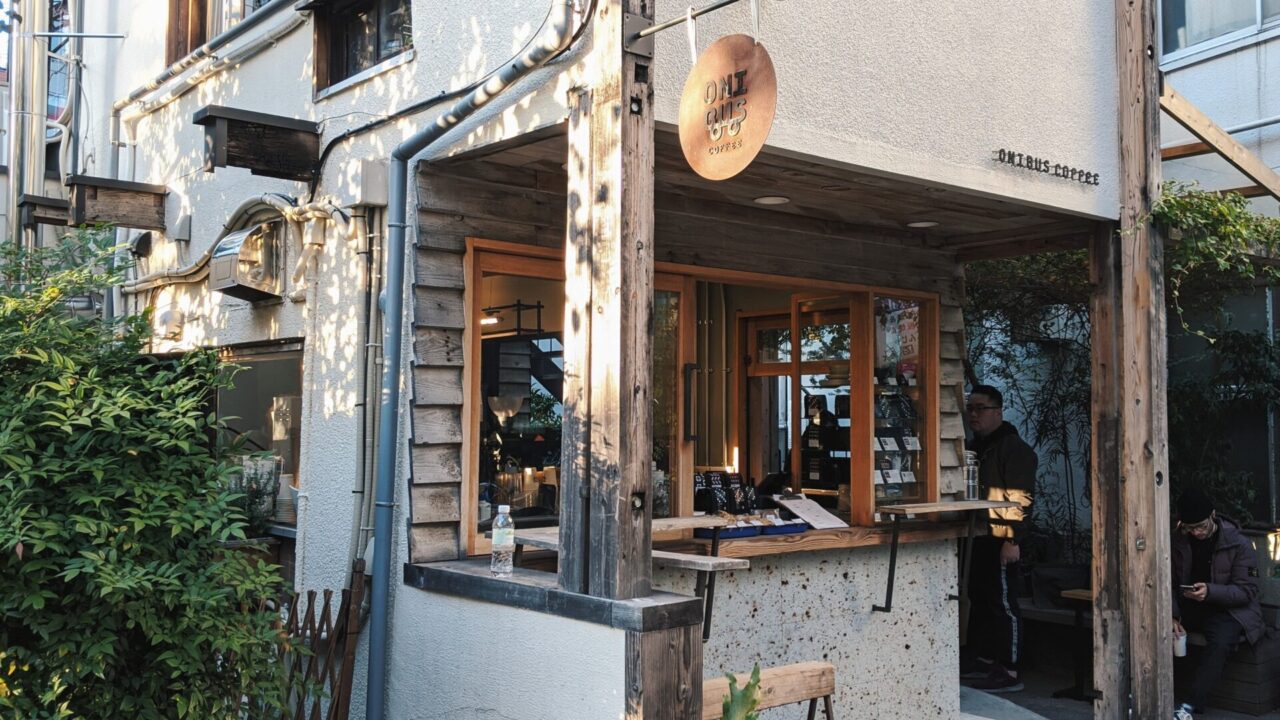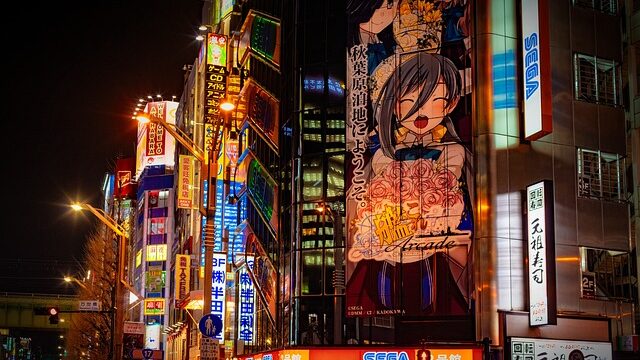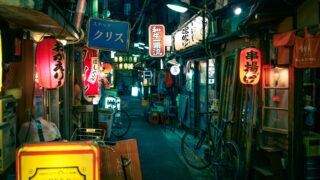Japan — a land of ancient traditions, bustling cities, serene temples, and a cultural fascination with harmony and the arts. Among the lesser-known treasures awaiting travelers is the “Utagoe Kissa” (歌声喫茶) or Songbird Café. These unique establishments offer an experience that harmoniously blends music, history, and community. Dive with us into this melodious world to discover what makes Utagoe Kissa so captivating.
1. What is Utagoe Kissa?
Utagoe Kissa, translated as “Songbird Café” or more simply, “Song Café,” stands as a uniquely Japanese institution. Distinct from the ubiquitous karaoke bars that many foreigners associate with Japan, Utagoe Kissa hearkens back to a different era, a time when music was seen not just as a form of entertainment but also a mode of expression.
Originating in the tumultuous post-war period of the 1950s, these cafés emerged as cultural sanctuaries. Amid the rapid economic growth and urbanization of Japan, they served as spaces where individuals sought solace in collective experiences. Patrons would gather not only to sip on their coffee but also to raise their voices in harmony, singing popular songs of the time, particularly those that carried political, social, or nostalgic sentiments.
Unlike the individualistic nature of karaoke where one sings alone, often in a closed booth, Song Cafés embody the spirit of togetherness. The emphasis isn’t on vocal prowess but rather on communal participation. Everyone, regardless of their singing ability, is encouraged to join in. This creates an atmosphere that’s both comforting and invigorating, a shared space where voices merge, stories intertwine, and the present moment is deeply rooted in melodies of the past.
A visit to an Utagoe Kissa is a journey into the heart of Japanese social culture. Beyond the melodies, it showcases the inherent Japanese value of ‘wa’ or harmony, where individual desires and voices become part of a larger, unified whole. The experience, thus, is not just about enjoying music, but about immersing oneself in a tapestry of shared memories, emotions, and histories.
2. The Historical Significance
The Utagoe Kissa phenomenon is deeply interwoven with Japan’s socio-political landscape, particularly in the decades following the Second World War. As the nation grappled with the aftermath of war and the task of rebuilding, these song cafés became an essential part of urban culture, serving as spaces of reflection, resistance, and rejuvenation.
In the immediate post-war era, Japan underwent transformative changes, both structurally and culturally. Rapid modernization, spurred by American influence and the government’s zealous drive, seemed to threaten traditional Japanese values and identities. Amidst this whirlwind of change, Utagoe Kissa emerged as repositories of cultural memory, preserving songs that encapsulated sentiments of the pre-war and wartime eras.
The songs sung in these cafés often carried poignant narratives of love, loss, hope, and sometimes, defiance. They served as bridges connecting the Japan of yore with the newly emerging post-war society. For many, singing these songs was an act of remembrance, a way of not forgetting the hardships and sacrifices of the past.
Additionally, in a time when public dissent and political activism could be perilous, Utagoe Kissa also functioned as clandestine meeting spots for activists and thinkers. The songs, replete with political and social undertones, became tools for subtle activism. The collective act of singing was, in a way, a silent protest against the suppressive aspects of the government and a critique of the rapid Westernization that many felt was erasing Japan’s cultural identity.
Thus, the historical significance of Utagoe Kissa goes beyond mere entertainment. These cafés stood as bastions of cultural preservation and resistance, reflecting the pulse of a nation undergoing seismic shifts. They encapsulated the struggles and hopes of a generation, offering solace through shared memories and melodies.
3. The Atmosphere: More Than Just a Café
Utagoe Kissa, with its rich tapestry of sounds, scents, and sights, offers an atmosphere that goes well beyond the typical café environment. Every corner of these establishments tells a story, evoking an aura of nostalgia that transports patrons back to a bygone era.
Upon entering an Utagoe Kissa, visitors are often immediately struck by the authentic Showa Era ambiance. The walls might be adorned with vintage posters from the 50s and 60s, displaying beloved singers of yesteryears or iconic movie scenes. Old wooden furniture, dimly lit lanterns, and antique radios often decorate the interior, exuding a sense of timelessness.
The aroma of traditional Japanese coffee, slowly brewed using cloth filters, mingles with the faint scent of tatami mats and aged wooden panels. This rich olfactory tapestry sets the stage for a multisensory experience. Patrons might hear the gentle hum of a vinyl record playing in the background before the communal singing begins, creating a gentle prelude to the main event.
But beyond these sensory delights, the true essence of Utagoe Kissa’s atmosphere lies in its people. Regulars, many of whom have been frequenting these spaces for decades, bring with them stories and memories. They might share tales of their youth, evoking a Japan that many younger generations might only know through stories. And when the singing begins, it’s a symphony of voices, young and old, coming together, transcending generational gaps.
Moreover, the act of communal singing in these song cafés isn’t just about enjoyment. It’s therapeutic. In a world that often prioritizes individual achievement, the collective voice of an Utagoe Kissa acts as a balm, reminding everyone of the joys of community and shared experience. The atmosphere is both a celebration of the past and a nod to the timeless human need for connection and belonging.
4. How Does It Work?
For the uninitiated, the concept and workings of Utagoe Kissa might seem a tad unfamiliar, especially when compared to the globally recognized phenomenon of karaoke. However, once you grasp the essence of these song cafés, the experience becomes an intuitive and heartwarming venture.
Firstly, upon entering an Utagoe Kissa, patrons are typically greeted with a cover charge. This fee serves a dual purpose. It covers the cost of one’s stay and usually includes a beverage, often coffee or tea, and occasionally a light snack. But more importantly, it’s an unspoken ticket into the shared musical journey that awaits within the café’s walls.
Once settled, visitors are handed songbooks. These aren’t the glossy, pop-filled catalogs one might expect in a karaoke bar. Instead, they are compilations of older, timeless Japanese songs that span genres and eras. From wartime ballads to post-war hits, the selection is a testament to Japan’s rich musical heritage.
There isn’t a digital screen to guide the lyrics or flashy background videos. Instead, the heart of the experience lies in the collective energy of the room. One might find a lead singer, often a regular or even a café staff member, initiating a song. Their voice, unamplified by electronics, sets the tone, and the café gradually fills with the voices of every patron joining in.
While many Utagoe Kissa rely on this organic, unaccompanied form of singing, there are some establishments where live musicians, often playing traditional instruments like the shamisen or the koto, accompany the chorus of voices. This live instrumentation further elevates the atmosphere, lending an authentic touch to the musical journey.
It’s essential to note that while the environment is welcoming, there’s an unspoken decorum to be maintained. Respect for the music, the lead singer, and fellow patrons is paramount. It’s less about showcasing individual talent and more about being part of a unified, harmonious experience. Utagoe Kissa isn’t a place for solo performances; it’s a space where individual voices melt into a collective resonance, echoing the shared memories and emotions of its participants.
5. Why Should Travelers Visit?
The allure of traveling lies not just in sightseeing but in immersive experiences that allow one to delve deep into the cultural fabric of a destination. Utagoe Kissa provides precisely this opportunity for those exploring Japan. Here’s an in-depth look at why these unique song cafés are a must-visit for every traveler:
Cultural Immersion: Utagoe Kissa is not a mainstream tourist attraction but a genuine cultural gem. Visiting one provides an unfiltered lens into Japan’s socio-cultural tapestry. Through the songs, visitors can get a sense of the nation’s history, the highs and lows, the moments of joy and sorrow, and the spirit of the Japanese people.
Bridge to the Past: In a country that harmoniously blends the ultra-modern with the ancient, Utagoe Kissa stands as a poignant reminder of the Showa Era. For travelers keen on understanding Japan beyond its skyscrapers and advanced technology, these cafés offer a gateway to a time when life was simpler, yet filled with complex emotions post-war.
Authentic Interaction with Locals: Unlike popular tourist spots teeming with visitors, Utagoe Kissa is frequented predominantly by locals. Engaging in communal singing fosters organic interactions, presenting a rare opportunity for travelers to bond with locals over shared melodies, smiles, and perhaps even a few tears.
Therapeutic Experience: Beyond cultural exploration, joining in the communal singing can be an incredibly therapeutic experience. It’s a chance to momentarily let go of one’s inhibitions, to be wrapped in the comfort of collective harmony, and to find solace in shared human emotions expressed through song.
Broaden Musical Horizons: Music is a universal language, and while one might not understand every word being sung, the emotions conveyed are palpable. It’s an opportunity to acquaint oneself with the rhythms, melodies, and nuances of traditional Japanese music, enriching one’s global musical palette.
In essence, while Japan boasts countless attractions, from ancient temples to avant-garde art installations, the humble Utagoe Kissa offers something intangible yet profound. It’s an experience that resonates deeply, leaving an indelible mark on one’s heart and memory. By visiting a song café, travelers aren’t just observers but active participants in a living, breathing tapestry of Japanese culture.
6. Finding Utagoe Kissa in Japan
As one delves into the enchanting world of Utagoe Kissa, the first logical question is – where can these treasures be found? While their numbers have dwindled from the heydays of the Showa Era, dedicated seekers can still discover these unique havens in various parts of Japan.
Tokyo’s Nooks and Crannies: Japan’s bustling capital, with its mesmerizing mix of the old and the new, houses a few remaining Utagoe Kissa. Districts like Shinjuku and Koenji, known for their rich subcultures, have some hidden gems. Venturing into the backstreets and alleyways, with their retro ambiance, might lead you to a discreetly signed entrance of a song café.
Osaka’s Retro Vibe: As Japan’s kitchen and a city that embraces its history, Osaka also plays host to some Utagoe Kissa. Areas like Namba, with its dense network of lanes, are home to these establishments. The city’s penchant for nostalgia and preserving the old amidst the new makes it a fertile ground for these song cafés.
Seek Recommendations: One of the best ways to discover an Utagoe Kissa is to ask the locals. Whether it’s a conversation with someone at a traditional ryokan (inn) or a local shop owner, personal recommendations often lead to the most authentic experiences.
Online Directories and Forums: With the global resurgence of interest in all things retro, several online platforms and forums discuss Japan’s vintage culture. These can be goldmines of information, with aficionados sharing their favorite Utagoe Kissa spots, tips, and even song recommendations.
Guided Tours: Some travel agencies, recognizing the cultural value of Utagoe Kissa, offer guided tours focusing on Japan’s Showa Era. These tours often include a visit to a song café, ensuring not just an introduction but also an informed immersion into the experience.
Preservation Efforts: Due to the cultural significance of Utagoe Kissa, there have been efforts at both the local and national levels to preserve these establishments. Some cities have listed notable song cafés as heritage sites or cultural landmarks. Checking such listings can guide travelers to these cherished spaces.
While the hunt for an Utagoe Kissa might require a bit more effort than finding the nearest modern karaoke joint, the rewards are immeasurable. The journey of discovery, combined with the rich experience awaiting inside, makes every step worth it. For those keen on understanding the heart and soul of Japan, stepping into the harmonious world of an Utagoe Kissa is a must.





